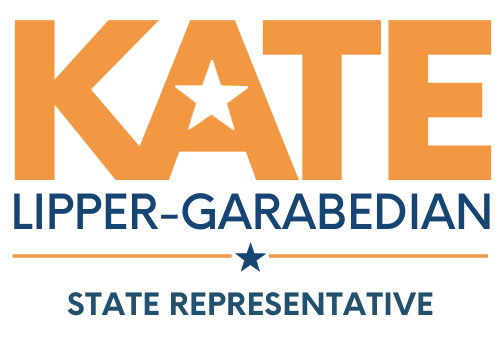State Representative Kate Lipper-Garabedian Supports $350 Million Bond Authorization for Local Transportation Infrastructure
BOSTON- April 4, 2022 - State Representative Kate Lipper-Garabedian (D-Melrose) on March 30 supported a $350 million bond bill to help maintain municipal roads and bridges under the state's Chapter 90 program and to provide additional funding for several transportation-related municipal grant programs.
“I was glad to join a unanimous House in voting to appropriate these funds to our municipalities, including for the Complete Streets program, road infrastructure for buses, and enhanced access to mass transit,” said Representative Kate Lipper-Garabedian. “Such investments are critical for quality of life, including in a District that has commuter rail and public buses in addition to being contiguous to the Orange Line, and to meet our climate goals.”
House Bill 4638, An Act financing improvements to municipal roads and bridges, will provide each city and town with funding to assist with the upkeep of its local transportation infrastructure under the state's Chapter 90 program, which is being funded at $200 million for Fiscal Year 2023. The bill was engrossed on a unanimous vote of 156-0 in the House of Representatives. Established in 1973, the Chapter 90 program allocates funding annually to all 351 Massachusetts cities and towns, using a formula that takes into account the weighted average of a community's local road mileage (58.33%), population (20.83%) and employment (20.83%). The program provides funding on a reimbursable basis, with cities and towns paying up-front for eligible expenses before receiving state compensation.
Representative Lipper-Garabedian noted the House bill also authorizes $150 million in additional spending for five state grant programs that cities and towns can access for assistance in funding local transportation-related initiatives. Specifically, the bill provides for:
• a $40 million increase for the construction, reconstruction, resurfacing, repair and improvement of pavement and surface conditions on non-federally aided roadways;
• a $30 million increase in the municipal small bridge program, which supports the design, engineering, construction, preservation, reconstruction and repair of, or improvements to, non-federally aided bridges;
• a $25 million increase for the Complete Streets Program, which provides technical assistance and construction funding to eligible municipalities seeking to provide safe and accessible travel mode options for people of all ages and abilities;
• a $25 million increase for grants to municipalities for the prioritization and enhancement of mass transit by bus; and
• a $25 million increase for grants to municipalities to expand access to mass transit and commuter rail stations.
Representative Lipper-Garabedian noted the Chapter 90 program is designed to help cities and towns address local transportation priorities by allowing funding to be used for a variety of construction purposes, including road resurfacing, sidewalk repairs, direction and warning signs, traffic signals, crosswalks, and street lighting. Other eligible construction projects include structural work on bridges, culverts, footbridges and pedestrian bridges, and retaining walls.
Communities can also use Chapter 90 funding for the purchase or long-term lease of certain road-building equipment specifically related to a Chapter 90 project, such as backhoes, catch basin cleaners, concrete mixers, excavators and pavers. Certain consultant services are also eligible for Chapter 90 reimbursement, including civil engineering, land surveying services and environmental permitting support, as well as miscellaneous expenses such as salt storage sheds and garages for storing road building equipment.
House Bill 4638 now heads to the Senate for its consideration.
